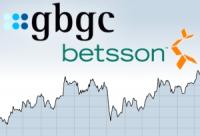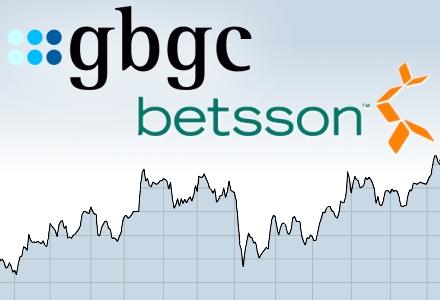 There are two general facts regarding the present and recent performance of iGaming companies. The first is that despite recessions, economic crises and so on, the industry is continuing to thrive. The second is that despite this, most of the iGaming companies listed on stock exchanges continue to struggle – in some cases struggle a lot.
There are two general facts regarding the present and recent performance of iGaming companies. The first is that despite recessions, economic crises and so on, the industry is continuing to thrive. The second is that despite this, most of the iGaming companies listed on stock exchanges continue to struggle – in some cases struggle a lot.
In light of this, it was no surprise that when Global Gambling and Betting Consultancy (GBGC) released their annual Index and Indices they made unpleasant reading for many – regardless of whether they be online or offline operators.
Over the entire Index 50 – a list detailing the 50 biggest gambling companies – market cap had fallen by 5% from April 2011 leaving it at $185.3 billion. Top of this list was Las Vegas Sands who continue to defy the trouble being had by many in Nevada. Behind them was Sands China, Wynn Macau and Genting Singapore highlighting once again that Asia is indeed the place to be regardless of whether you’re online or not.
As well as the 50 Index GBGC also produce the iGBGC Index – a list of the ten biggest public online gambling companies. Unsurprisingly top of that list was bwin.party Digital Entertainment who were followed by Playtech. The list reads:
1. bwin.party
2. Playtech
3. Betfair
4. Betsson
5. Unibet
6. Net Entertainment
7. Tipp25
8. Sportingbet
9. 888 holdings
10. Amaya Gaming
Despite their standing at the top of this list, bwin.party won’t be celebrating. In the twelve months since the last iGBGC Index was published, the company’s shares have dropped by 20%. In fact, six of the ten companies in the top ten saw their share prices decrease during the year.
Out of these six, only Net Entertainment manages to keep their percentage decrease to single figures while others saw big drops. Of these, none suffered more than Sportingbet. The company’s shares are now trading at 47.3% less than they were last year. This has caused them to fall out of the GBGC Index 50, currently occupying the 56th spot.
GBGC’s research director Lorien Pilling explains that unsurprisingly the poor performance of many iGaming firms has been caused by regulation: “The move to domestic internet gambling regulation in Europe is certainly putting the e-gaming business model under pressure. The original model was founded on the pillars of low tax, high payout to customers, and a single operating license.”
However, it’s not all doom and gloom. Those of you who are mathematically advanced will have noted that this leaves four iGaming companies who had share price success in the last year. The successful companies in question were Amaya Gaming who saw a 5.6% increase in share price, Tipp24 whose shares increased by 13.1%, Unibet with an increase of 11.7% and the year’s best performer Betsson.
The man who has been at the helm of Betsson since June 30th is CEO Magnus Silfverberg (Video interview with Magnus Silfverberg). Silfverberg took over after Pontus Lindwall quit. Such instability could cause worry for financial analysts and more often than not has a negative effect on share prices – just ask Betfair and 888.
However, it came at a time when Betsson had just established a potentially lucrative joint venture in China as well as acquiring Betsafe. These deals, combined with clear strategies and the impressive leadership of Silfverberg has meant that Betsson has risen to be the shining light of the public iGaming sector.
Speaking about the reasons for their success Silfverberg said: “The increased focus on the Noridcs for Betsson.com as well as the acquisition of Betsafe has been two important catalysts.
“With Betsafe we have boosted our team with strong product and marketing professionals and we have been able to improve both our combined offering and our marketing.”
Betsson effectively blew their iGaming competitors out of the water in 2011 with a staggering 30.3% increase in share price. Contrast this with the 32.4% and 47.3% decreases of Playtech and Sportingbet respectively and you gain some context on just how impressive this performance is.
With regards to why Betsson has succeeding when others have failed, Silfverberg explains: “We have been successful in combining growth, both in B2B and B2C with a more efficient marketing spend and tighter cost control.”
Looking towards the future, Pilling predicts that things aren’t necessarily going to get better in 2012.
She said: “In 2012 European operators are facing higher tax, resulting in lower customer payouts, and the increased costs of multiple licenses. Several firms in the iGBGC Index will be hoping for substantial developments in the US this year to help them out.”
However, Silfverberg and Betsson are confident of continuing their success.
He explains: “From a market perspective, Betsson is continuing to focus on the Nordics, and from a product perspective a lot of the development efforts are targeted at improving our mobile offering. Our ambition is to enable all segments in all markets full mobile access as well as seamlessness between mobile and PC.”
It’s very much a horses for courses situation and what works for Betsson may not work for others. Their position in the Nordic market provides them with a huge advantage over others. However the mobile aspects of their plans are ones that everyone should be looking at.
But for the time being, Silfverberg and Betsson will be most pleased with the way things are going and should their repeat their success this year then they will be sitting extremely pretty.
